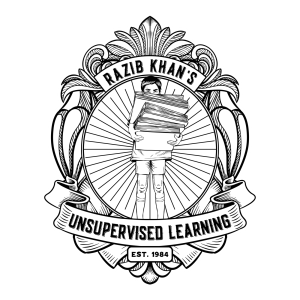
Razib Khan's Unsupervised Learning
Science:Life Sciences

Jason Richwine: an immigration restrictionist speaks
 2022-05-27
2022-05-27
Last month Razib talked to Alex Nowrestah of the Cato Institute about the state of migration and policy in the US in 2022. An enthusiast for immigration, Nowrestah expressed some chagrin that the issue has fallen off the American public’s radar, at least judging by the sharp dropoff in media inquiries to his office. And yet there remains a whole policy class in Washington D.C. that is still attending to the complex and fraught topics in and around migration that shape the future trajectory of American demographics. While Nowrestah definitely leans toward opening up the borders, today on the Unsupervised Learning podcast Razib talks to Jason Richwine, a resident scholar at the Center for Immigration Studies, who comes at the question from the opposite viewpoint. While much of the American elite, from the conservative pro-business chamber of commerce to liberal human-rights activists, aim to increase the stream of migration, Richwine and his colleagues at CIS argue that not only should America take back control of its borders, a serious case can be made for restricting and reducing immigration.
Over the course of their discussion, they touch on the relevance of economics, culture and politics to the immigration question. In a 2022 America of full employment, Richwine is not persuaded of the economic case for more labor supply. He makes the argument that full employment is a feature, not a bug, of the low-migration scenario imposed by the recent pandemic. And full employment is good for America’s working class in particular. Rather than economics, Richwine seems more concerned about the cultural impact of immigration, as newcomers transform the character and values of American society bit by bit. Where many analysts are focused on the macroeconomic impacts of migration, Razib and Richwine probe the deep roots of 17th-century American culture in different streams of Anglo migration, and consider what that can tell us about cultural differences in the 21st-century.
More Episodes
 2022-02-04
2022-02-04
 2022-01-27
2022-01-27
 2022-01-25
2022-01-25
 2022-01-20
2022-01-20
 2021-12-23
2021-12-23
 2021-12-16
2021-12-16
 2021-12-09
2021-12-09
 2021-11-25
2021-11-25
 2021-11-18
2021-11-18
 2021-11-11
2021-11-11
 2021-10-28
2021-10-28
 2021-10-26
2021-10-26
 2021-10-14
2021-10-14
Create your
podcast in
minutes
- Full-featured podcast site
- Unlimited storage and bandwidth
- Comprehensive podcast stats
- Distribute to Apple Podcasts, Spotify, and more
- Make money with your podcast
It is Free
- Privacy Policy
- Cookie Policy
- Terms of Use
- Consent Preferences
- Copyright © 2015-2024 Podbean.com




